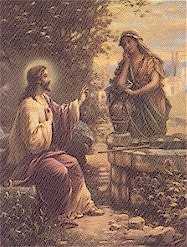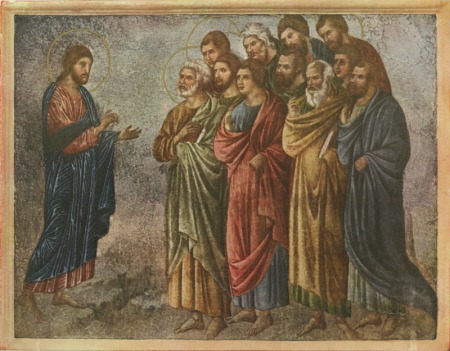I recently called attention here to the rather spirited response of Thomas Thompson to Bart Ehrman regarding how the so-called “mythicists” are portrayed in his new book,Did Jesus Exist? on the web site Bible and Interpretation. Previously, Thompson’s co-editor, Thomas Verenna had taken Ehrman to task as well on the same site here, asserting:
While Ehrman spends a great deal of time analyzing the evidence, he does so in ways which ignore the more recent critical scholarship which undercuts his entire position. In other words, the case for a historical Jesus is far weaker than Ehrman lets on.
Just today Maurice Casey has posted a response to Thomas Thompson, not so much to defend Ehrman, he says, as to point out that Thompson is simply incompetent as a New Testament scholar. His provocative title, “Is Not This an Incompetent New Testament scholar? A Response to Thomas L. Thompson,” is meant to be a play on Thompson’s original post, “Is This Not the Carpenter’s Son?” You don’t want to miss these exchanges. You might also want to take a look at Prof. Casey’s sharp overview of the “mythicist” position here. As John Loftus recently pointed out, there is an “all out war” on this topic bouncing back and forth in the biblioblogosphere, see his post here.







ganesan says
//. Not even single verse is added or removed from the Holy Bible. It has been tested by time and lots of scholars.//
http://www.amazon.com/gp/product/0060859512
Go and check the above book.
Misquoting Jesus: The Story Behind Who Changed the Bible and Why
It is written by the top most New testament scholor in America.
Top 10 Verses that were not Originally in the New Testament
1 John 5:7 – There are three that bear witness in heaven, the Father, the Word, and the Holy Spirit, and these three are one.
One of the more famous stories in the Bible is the “Let he who is without sin cast the first stone…” incident. The next two verses that Ehrman lists are from the same encounter (from which I quote at length in the block quote).
John 8:7 – Let the one who is without sin among you be the first to cast a stone at her.
John 8:11 – Neither do I condemn you. Go and sin no more.
John 8:1-11 (NRSV)
while Jesus went to the Mount of Olives. Early in the morning he came again to the temple. All the people came to him and he sat down and began to teach them. The scribes and the Pharisees brought a woman who had been caught in adultery; and making her stand before all of them, they said to him, ‘Teacher, this woman was caught in the very act of committing adultery. Now in the law Moses commanded us to stone such women. Now what do you say?’ They said this to test him, so that they might have some charge to bring against him. Jesus bent down and wrote with his finger on the ground. When they kept on questioning him, he straightened up and said to them, ‘Let anyone among you who is without sin be the first to throw a stone at her.’ And once again he bent down and wrote on the ground. When they heard it, they went away, one by one, beginning with the elders; and Jesus was left alone with the woman standing before him. Jesus straightened up and said to her, ‘Woman, where are they? Has no one condemned you?’ She said, ‘No one, sir.’ And Jesus said, ‘Neither do I condemn you. Go your way, and from now on do not sin again.’
I was expecting as a result of my brief article: “Jesus: Unoriginal Moral Thinker” for someone to have mentioned this story from the Gospel of John. So far, I haven’t had it claimed as a response to the implicit challenge that Jesus never really taught anything original — and the things that were original were immoral (for example, a thought-crime is equivalent to the actual crime).
If someone had mentioned the “cast the first stone” as an original moral, I would pointed out two problems. First, this story, which only appears in the Gospel of John, is a later addition. Not only does Ehrman make this point, but so does the Harper Collins Study Bible:
“The most ancient authorities lack 7.53—8.11; other authorities add the passage here or after 7.36 or after 21.25 or after Luke 21.38, with variations of text; some mark the passage as doubtful. Scholars generally agree that this story was not originally part of the Gospel of John.“ (My emphasis added) – p 1830 Harper Collins Study Bible (which I recommend if you are serious about having a scholarly Bible for reference).
The second problem is that it’s pretty hard to get a moral principle out of the story that is useful: don’t punish people unless you have never done anything wrong, ever?
Seriously though, think of how pervasive the story of ‘casting the first stone’ is in society — it is one of the most popular stories of the entire Bible — and it was not in the original Gospel account!
Luke 22:44 – In his anguish Jesus began to pray more earnestly, and his sweat became like great drops of blood falling to the ground.
Luke 22:20 – And in the same way after supper Jesus took the cup and said, “This cup that is poured out for you is the new covenant in my blood.”
The following two verses form the basis of my essay: Ridiculous Ending to the Gospel of Mark. This essay gives an explicit example of how I would steer the conversation if the person I was arguing with did not believe that the ending to the Gospel of Mark was a later addition.
Mark 16:17 – These signs will accompany those who believe: in my name they will cast out demons and they will speak with new tongues.
Mark 16:18 – And they will take up snakes in their hands, and if they drink any poison it will not harm them, and they will lay their hands on the sick and they will become well.
The last three verses round out the top ten:
John 5:4 – For an angel of the Lord went down at certain times into the pool and disturbed the waters; and whoever was the first to step in when the water was disturbed was healed of whatever disease he had.
Luke 24:12 – But Peter rose up and ran to the tomb, and stooping down to look in, he saw the linen clothes by themselves. And he went away to his own home, marveling at what had happened.
Luke 24:51 – And when Jesus blessed them he departed from them and he was taken up into heaven.
It’s worthwhile to go through each of these verses and think about the implications of each verse that was added. Being well-versed in the history of the Bible is very useful knowledge to have if you want to engage people.
Study up and get out